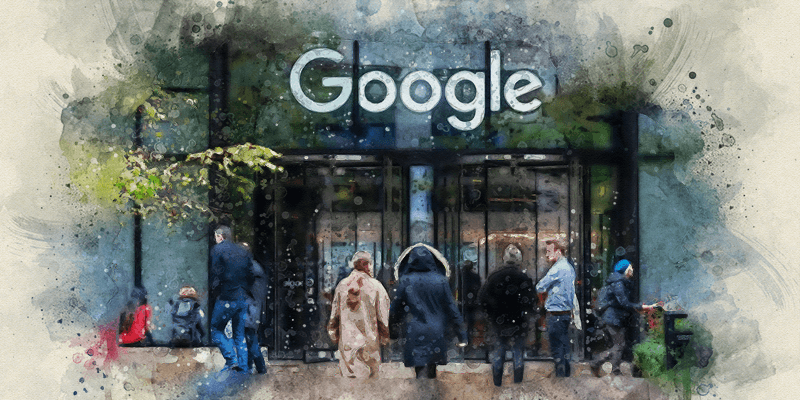
As Google celebrates its 25th anniversary, it’s hard to believe that a mere quarter-century ago, the term “Google it” was non-existent in our vocabulary. Over the years, Google has been more than just a search engine—it has influenced our daily lives, reshaped global cultures, and has been instrumental in fostering social awareness. However, with the growth of technology, questions about life-balance, well-being, and life-empowerment have risen to the forefront.
Technology and Social Awareness
Google has undeniably made information accessible to all. What was once a laborious trip to a library or an encyclopedia set has become a matter of a few keystrokes. This democratisation of knowledge has accelerated social awareness. Movements, causes, and global events are instantly known, shared, and even mobilised through platforms under Google’s umbrella, like YouTube.
Furthermore, Google has given a voice to the voiceless, bringing attention to marginalised communities and amplifying calls for justice. The ability to share stories worldwide in real-time has transformed the very nature of news dissemination, making users more informed and more conscious of global issues.
The Cultural Paradigm
Google, in its ubiquity, has touched every facet of culture. Be it art, music, fashion, or cinema, Google’s influence can be seen in the way trends are set, tracked, and disseminated. The Google Doodle, for instance, celebrates diverse cultural icons and events, bringing global attention and fostering a sense of unity in diversity.
Furthermore, tools like Google Translate have bridged language gaps, making cross-cultural communication smoother and fostering mutual respect among different communities.
Life-Balance & Well-being
However, as with all technology, there are concerns. The constant barrage of information and the ability to be ‘online’ has blurred the lines between work and personal life. Google, recognising this, has introduced features like Digital Wellbeing to help users manage their screen time and ensure technology remains a tool rather than a distraction.
Moreover, Google’s focus on AI-driven mental health apps and tools signifies a commitment to addressing the broader implications of technology on human psyche and emotional well-being.
Life-Empowerment
Google’s suite of products, from Google Drive to Google Classroom, have empowered individuals to learn, create, and collaborate in ways previously unimaginable. Entrepreneurs have built businesses from scratch using these tools, educators have expanded their reach, and individuals have found ways to enhance their personal and professional lives. In essence, Google has provided the tools for life-empowerment, enabling every user to harness the power of the internet for personal growth.
Google’s 25-Year History: Features, Challenges, and Successes
1998:
- Feature: Launch of Google Search Engine.
- Challenge: Competing with established search engines like AltaVista and Yahoo.
- Success: Gained attention for producing relevant search results.
2000:
- Feature: Introduction of AdWords.
- Challenge: Monetizing the search engine without compromising user experience.
- Success: AdWords becomes a major revenue source.
2001:
- Feature: Launch of Google Images.
- Challenge: Organizing and making billions of images searchable.
- Success: Became the go-to resource for image searches.
2004:
- Feature: Launch of Gmail.
- Challenge: Competing with established email services.
- Success: Rapid user adoption due to 1GB storage offer.
2005:
- Feature: Introduction of Google Maps and Google Earth.
- Challenge: Mapping the entire globe and providing real-time navigation.
- Success: Became a primary navigation tool for users worldwide.
2006:
- Feature: Acquisition of YouTube.
- Challenge: Managing and moderating vast amounts of user-generated content.
- Success: YouTube grows to become the world’s largest video-sharing platform.
2008:
- Feature: Launch of Google Chrome browser.
- Challenge: Competing with established browsers like Internet Explorer and Firefox.
- Success: Chrome quickly gains market share.
2010:
- Feature: Introduction of Google Buzz (later shut down in 2011).
- Challenge: Creating a successful social network.
- Success: Buzz failed to gain traction; Google learned from the experience.
2011:
- Feature: Introduction of Google+ (shut down in 2019).
- Challenge: Competing with Facebook and Twitter.
- Success: Although Google+ had some unique features, it eventually closed due to low user engagement.
2013:
- Feature: Launch of Google Glass.
- Challenge: Integrating AR into daily life.
- Success: While the consumer version wasn’t widely adopted, it found niche uses in industries like healthcare.
2015:
- Feature: Introduction of Google Assistant.
- Challenge: Advancing AI to understand and assist with human tasks.
- Success: Google Assistant is now integral to Android devices and smart homes.
2018:
- Feature: Google Duplex demonstrates AI making phone calls.
- Challenge: Ethical implications and acceptance of AI-human interaction.
- Success: Impressed tech industry with AI’s capabilities, but sparked discussions about disclosure.
2020:
- Feature: Continuous improvements in AI, quantum computing, and healthcare tech.
- Challenge: Data privacy concerns and antitrust investigations.
- Success: Google remains a leading tech company, despite regulatory challenges.
2023 (25th Anniversary):
- Feature: Reflection on past achievements and vision for the future.
- Challenge: Maintaining innovation while addressing growing ethical and societal concerns.
- Success: Celebrating 25 years of influencing the digital landscape.
This timeline captures some of the major events in Google’s history over the last 25 years. Aware Of course, there are many other products, initiatives, and events that could have been included but aiming to share game changers as well as confirming even the best endeavours and no matter the the size of the organisation there is an element of failure where we learn and continue to strive for success.
Conclusion
As Google marks its 25th year, its influence on social awareness, culture, and individual empowerment is undeniable. While challenges persist, especially concerning life-balance and well-being, the journey of this tech giant serves as a testament to the boundless possibilities technology offers. As users, it is upon us to harness these tools responsibly, ensuring that we derive empowerment without compromising on our well-being.





